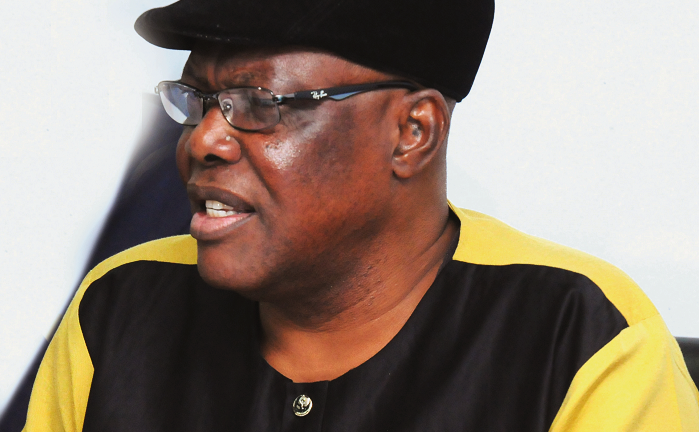
NMC vows to sanitise airwaves
The National Media Commission (NMC) says in spite of the suit challenging the law on content standards regulations pending before the Supreme Court, it is taking steps to ensure that the airwaves are devoid of inflammatory language during this year’s electioneering.
According to the commission, two media monitoring centres had been established in Accra and Kumasi to help track media performance and identify professional gaps for the required regulatory intervention.
Additionally, the NMC has received from the European Union (EU) a mobile monitoring unit which can be deployed to monitor the media in any part of the country.
Furthermore, it has established media advisory committees in the Volta, Ashanti, Upper East and Northern regions to help in its regulatory work before, during and after the elections.
At a press conference in Accra yesterday, the Chairman of the NMC, Mr Kwasi Gyan-Apenteng, said similar committees would be set up in the remaining six regions, if funds were available, as part of measures to bring sanity onto the airwaves.
Dealing with effusions
About growing public concern over the country’s broadcasting space in the absence of a broadcasting law, he said “the recent offensive effusions by some radio panellists at a radio station underscored the need for the nation to ensure that the abuse of the airwaves does not lead to violence during this year’s elections”.
He said while the NMC had, on many occasions, been called upon to do something about the deteriorating standards of political communication in the media, it had deployed and continued to use mechanisms that would rid the broadcast media of abuse.
Mr Gyan-Apenteng said the development of guidelines on political advertising, local language broadcasting and fair and equitable coverage of all parties by state-owned media and print media guidelines addressed many of the violations the media were accused of.
Content regulation law
Parliament last year passed Legislative Instrument (LI) 2224 to empower the NMC to regulate broadcasting and other electronic media content more effectively.
The implementation of the law requires electronic media owners to seek approval from the NMC for their content before they publish anything.
However, the Ghana Independent Broadcasters Association (GIBA) filed an application to restrain the NMC from enforcing certain provisions of the new legislation which came into force on December 9, 2015 until the final determination of the case it sent to the Supreme Court challenging the legality of the new law.
The court ruled in favour of the association.
In its writ to invoke the original jurisdiction of the Supreme Court, GIBA is seeking, among other things, “a declaration that upon a true interpretation of articles 162, 167 and 173 of the 1992 Constitution, neither the government of Ghana nor any state institution created under the Constitution, including the NMC, shall engage in acts or exercise any powers that are likely to amount to censorship, control and direction of institutions of mass media communication in Ghana”.
Content regulation universal
But Mr Apenteng said the need to regulate broadcasting and other forms of electronic communication was a universally accepted fact.
Laws on broadcasting, he said, looked at two main elements — technical standards and content.
While the technical side looked at issues, including frequency allocation and assignment, equipment type and capacity and rules against spectrum interference, the second dealt with content, including pornography, indecency, protection of minors, privacy of individuals, fairness, objectivity and balance, he said.
But in the case of Ghana, he said, while the technical standards had been adequately provided for in the Electronic Communications Act and its accompanying regulations, there had been none for content.
Mr Gyan-Apenteng said four things gave the impetus to enact the legislation — global best practice, responses from Ghanaians who appeared before the Constitutional Review Commission (CRC), the powers the 1992 Constitution bestowed on the commission to maintain the highest journalistic standards, and experiences from the 2012 elections that showed that the lack of a regulatory framework was a contributory factor to the general anxiety that characterised the elections.
“It is a necessary mechanism for sanitising our airwaves. At the heart of the law are standards that are universal and consistent with international norms.
“We are hopeful that the Supreme Court will give a judgement that will enable us to apply the core principles of the law during this period,” he said.
He, meanwhile, charged the media, especially the umbrella bodies in the media circle — the Ghana Journalists Association (GJA), GIBA and the Private Newspaper Publishers Association of Ghana (PRINPAG) — to ensure that their members lived according to their own ethical standards set out in their guidelines.
